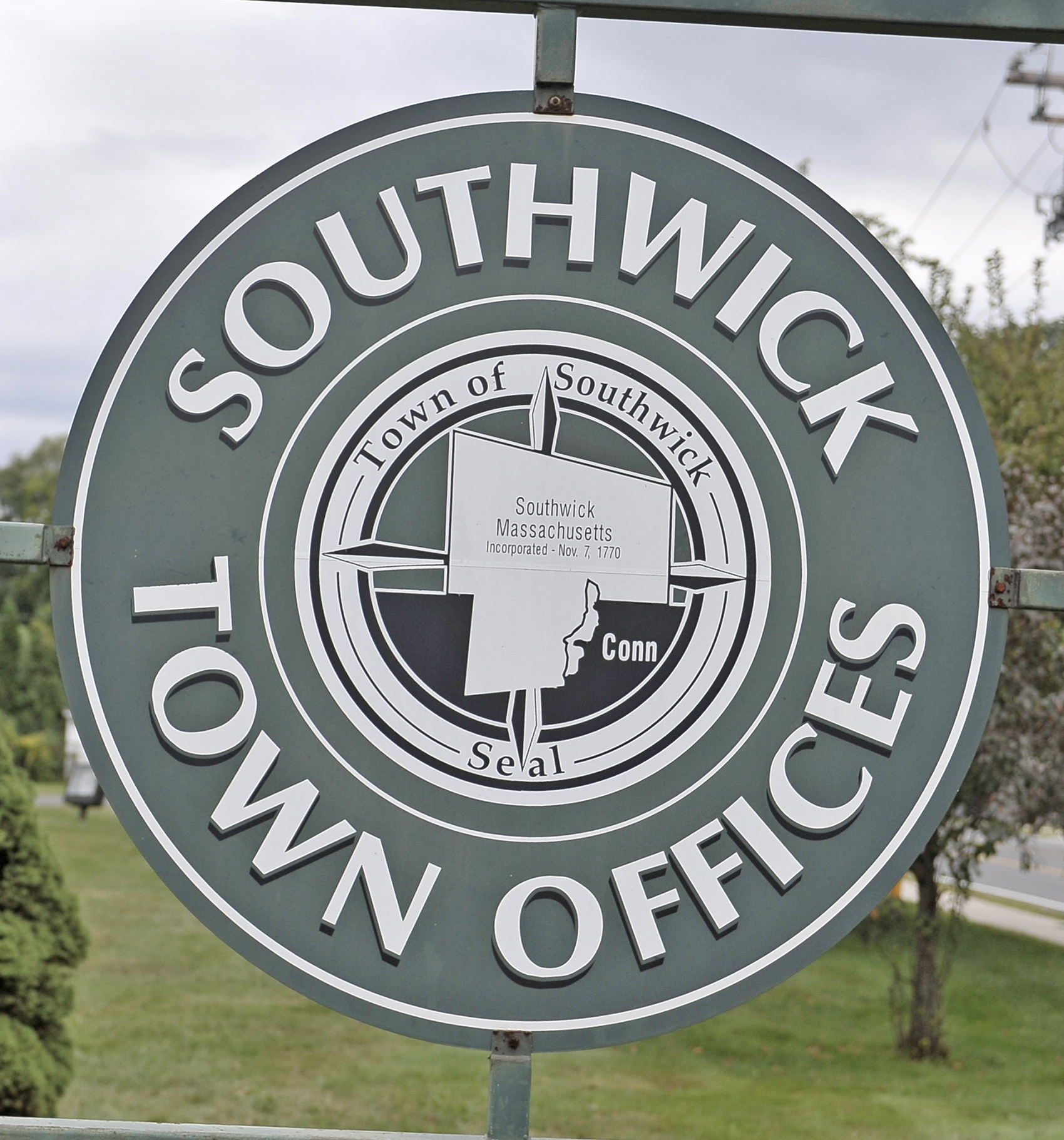SOUTHWICK — The town’ attorney said in a letter to Diane Gale that the Select Board may have violated state Open Meeting Law during the Sept. 27 meeting in which three commission members were controversially removed from the Agricultural and Conservation commissions.
Gale had submitted six Open Meeting Law complaints alleging violations going back to June of this year. Benjamin Coyle, the town’s attorney from Bacon & Wilson, said in a letter to Gale last week that five of the complaints, from Select Board meetings from June 7 to Sept. 13, would be rejected because the complaints were not submitted in a timely enough fashion.
The sixth complaint alleged multiple violations on the part of the Select Board during the Sept. 27 meeting. Coyle’s letter said that the violation would be addressed somehow during the Monday, Nov. 15, Select Board meeting.
Select Board Chair Joseph Deedy did not return a request for comment by press time.
Gale’s complaint for the Sept. 27 meeting specifically alleges that the board had failed to discuss or announce in open session that certain commission members were going to be removed from their posts and replaced. Maryssa Cook-Obregon, Dennis Clark and Chris Pratt were all removed from their commissions, and did not find out until the day after the board’s vote.
Gale also pointed out in her complaint that the board failed to nominate the new commission members. Kevin Solek and Rose Hanna were added to the Conservation Commission and Bob Mucha was added to the Agricultural Commission as part of an omnibus vote reappointing several town commissions and committees. There were no individual nominations or votes on the three new members.
In addition, Gale raised questions about the legality of removing commissioners before their terms were due. Cook-Obregon’s term on the Conservation Commission began in 2019. Under Massachusetts General Laws, local Conservation Commission members are supposed to have terms of three years each, meaning Cook-Obregon should not have been eligible for replacement, Gale said.
In the town response to the complaint, Coyle said that the town had purchased new software to track appointments and terms of boards and commissions in 2019, in the hopes of launching it in July 2020. He said that the COVID-19 pandemic caused a delay in the implementation, and the Select Board began simply making one-year appointments, to resolve discrepancies between the records being kept by the Select Board and the town clerk.
“The Select Board was under the belief that the appointments made in 2020 were valid one-year appointments, as they were not challenged at the time they were made,” said Coyle in his response, later adding, “The Select Board was unaware that making appointments to some boards for one-year terms was contrary to statutory provisions and/or bylaws that require some appointments to be for a period of three years.”
He said that the Select Board has now been advised that the one-year term appointments in 2020 and 2021 were “not in compliance with the law.”
Coyle also noted that, while it was not alleged as a specific Open Meeting Law violation in Gale’s complaint, the posted agenda for the Sept. 27 meeting included no information on which commissions would be reappointed that night, and who the applicants were.
“The Select Board has been advised that the [state] attorney general has held the agenda must include specific details about appointments to be made and specific applicants,” said Coyle.
Coyle said that the Select Board outright denied Gale’s allegations that they had discussed the appointments among themselves outside of an open session.
Gale said that she may dispute the dismissal of her other five complaints with the Massachusetts attorney general’s office.
“I disagree with attorney Coyle’s statement dismissing each of those other five claims. The basis of each complaint was the same — that Select Board written protocols were not being followed, specifically how they are required to conduct appointments and notifications of such appointments,” said Gale, “How could we reasonably have known the Select Board was habitually violating those protocols, open meeting laws and [Massachusetts General Laws] until these recent blatant transgressions occurred and brought those past violations to light, as well?”


